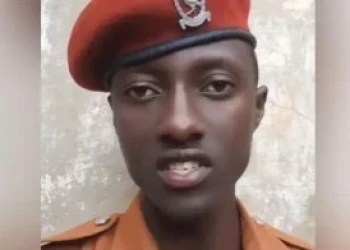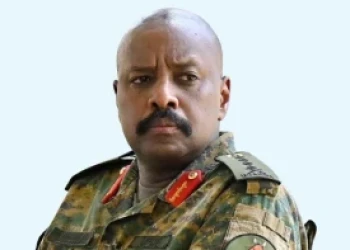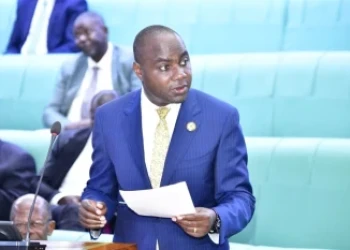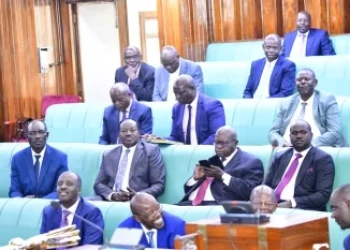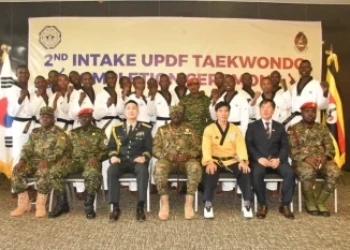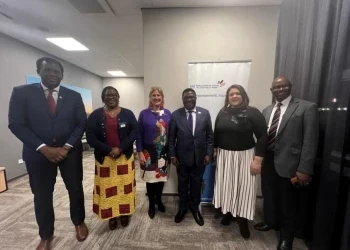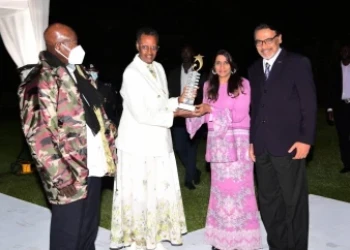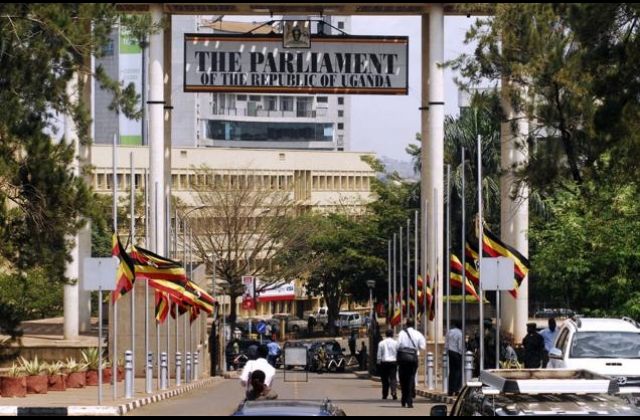
Committee on human rights committee of Parliament shocked the nation when it presented conflicting reports following last week's visit to Nalufenya Police facility in Jinja.
The committee led by Chairperson Jovah Kamateeka, visited the facility on Friday May 19, at the directive of Speaker Rebecca Kadaga to assess the condition of suspects detained there amid allegations of torture masterminded by police officers.
The team however, failed to agree on the findings. Hon. Kamateeka told parliament that they could not independently verify the allegations of torture at Nalufenya since the visit was not impromptu and many suspects were transferred. Adding that the committee could not independently verify the real conditions of the suspects at the facility.
But, Kilak North MP Anthony Akol sent the house in awe, when he contradicted his colleagues in a minority report, stating that the committee was treated to a setup of a well-organized police facility contrary to what it is.
According to Akol, the 21 suspects they talked to appeared to have been selected for the visit. "The suspects had no wounds and no trace of any torture. They appeared frightened and fearful and could not tell us anything but merely that we are not tortured and we are treated well." reads part of Akol's minority report.
Akol further told the house that, medical records at the clinic show that many suspects were being treated with conditions like soft tissue injuries, open wounds, blood flowing from the ears, and other conditions associated with torture.
The MP added that when Police Spokesperson, Asan Kasingye was tasked to explain why those treated in the clinic are nowhere to be seen in the cells or records, and even in their Lock up books, he explained that the clinic treats the Police officers, families of Police officers and even individuals who are residents of Jinja and they come there for treatments.
Meanwhile, both reports confirmed that the Nalufenya operates as a special police facility dedicated to handling high profile cases and suspects are brought from any part of the country for investigation and interrogations. Several of the suspects in Nalufenya are detained on charges of terrorism, abetting terrorism, aggravated robbery and murder.
The committee report observes that Nalufenya is not a conventional police station. Kamateeka reported that even with a constitutional mandate, the committee could only access the facility after a protracted negotiation at the entrance to the facility.
"Calls had to be made to Kampala for clearance. The members were barred from entering with their official Ipads and other communication gadgets," Kamateeka said adding that given Nalufenya's current operations, the facility does not seem to guarantee the protection of personal liberty under Article 23 of the Constitution.
However, both reports approve that Kamwenge municipality chairperson Geoffrey Byamukama was tortured and taken to Nalufenya. Byamukama, who is held in staff quarters, with proper bedding's and mosquito net says he was handcuffed and tortured using batons on the knees and iron bars on the ankles leaving him unable to walk, sit or stand before being delivered to Nalufenya.
Akol's report however highlights that the bed where Byamukama is detained was just bought and prepared for the committee visit.
According to the 2012 Prevention and Prohibition of Torture Act, torture means any act by which severe pain whether physical or mental is intentionally inflicted on a person by any person to obtain information, intimidation and others.
Comments (0)
📌 By commenting, you agree to follow these rules. Let’s keep HowweBiz a safe and vibrant place for music lovers!


